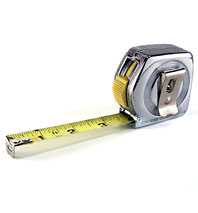
Since human growth hormone was approved by the Food and Drug Administration in 2003 to treat unusually short but otherwise medically normal children, a great deal of research has gone into trying to prove why a couple of extra inches are crucial for an undersize kid. As endocrinologist Alan Rogol put it, “Short stature became a disease when unlimited amounts of growth hormone became available.” Last week, a story in the New York Post added some class frisson to the issue, reporting that “at least” six sophomores at the exclusive Dalton School were taking HGH to augment their height. The family of 16-year-old (and five-foot-seven) Jeffrey Stern was reportedly suing the family’s insurance provider for not paying for continuing treatment—nearly $30,000 a year—in order for Jeffrey to reach, in the words of his mother, Margot, “the height that’s owed to him.” The Post argued that HGH treatments “are being used increasingly by wealthy parents looking to give their children a leg up.”
When Eli Lilly applied for FDA approval for using HGH to treat kids with “idiopathic short stature,” meaning at or below the 1.2 percentile on the growth chart, the widespread assumption among doctors was that short stature is a psychological disability and that adding inches increases psychological well-being. Indeed, the company strove mightily to produce data showing that short children who used HGH had a measurable improvement in their psychological “quality of life.” The thing is, Eli came up empty.
A consensus document approved last year by the pediatric-endocrinology community acknowledges that there’s no evidence that growth hormone enhances quality of life in short but medically normal kids. One European study compared adults who had used HGH as short children against others who were similarly short in childhood but hadn’t used the drug. They ended up essentially the same psychologically in adulthood—except that, oddly, the HGH users were less likely to have romantic partners than nonusers.
I was a 59-inch, 82½-pound quivering mass of delayed manhood when I entered high school. That put me in the first percentile in the growth chart during the worst stretch of persecutorial life span imaginable. For a while, I felt that every shortcoming—no girlfriend, no athletic glory, no swagger—stemmed from being short. But even after ending up about five foot six, I eventually realized that height didn’t matter much—not to romantic partners, not in terms of gaining the esteem of work colleagues, and ultimately not to my own sense of self.
Maybe I had to work harder. But, as David Sandberg, a psychologist at the University of Michigan, has long argued, short kids do fine in the long run—finer than some of their peers, in fact, because of the adversity they’ve experienced and the resilience they’ve developed. Conversely, he wonders what messages children internalize when their parents perceive physical size as a problem.
Which isn’t to say that short kids have it easy. A number of studies have confirmed the social bias against the undersized. And the height-to-salary correlation has been so strong in some studies that several years ago, economists based at the University of Pennsylvania argued that the use of HGH treatment for 16-year-olds could be justified as an economic decision. But greater happiness and psychological well-being? Definitely … not.
Have good intel? Send tips to intel@nymag.com.